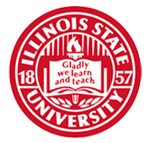Abstract
This study sought to determine if speech-language pathology graduate students found peer-to-peer teaching and experiential learning beneficial in learning how to assess the cranial nerves. Graduate students in a motor speech disorders course completed an in-class cranial nerve examination in which they either portrayed clinicians or patients. Student groups utilized a reflective practice approach by teaching their peers how to assess the cranial nerves. Intensive practice sessions were offered almost daily for two weeks prior to the exam. Thirty-seven students completed an online survey about their knowledge and confidence in assessing cranial nerves and identifying diagnoses before starting the training for the exam; 36 participants completed the same survey post-exam training. Students reported feeling more confident and less anxious in evaluating the cranial nerves, assessing damages, and identifying diagnoses. This preliminary study indicates peer-to-peer teaching could be an effective strategy for learning how to evaluate cranial nerves.
Recommended Citation
Burda, A.,
Brotherton, S.,
Duitscher, A.,
Hart, E.,
Kellogg, M.,
Schreck, K.,
Sutton, C.,
&
Van Dyk, P.
(2022).
The Cranial Nerve Exam: Effectiveness of Peer-to-Peer Teaching and Experiential Learning in Speech-Language Pathology Graduate Students.
Teaching and Learning in Communication Sciences & Disorders, 6(3).
DOI: https://doi.org/10.30707/TLCSD6.3.1664996985.093189




